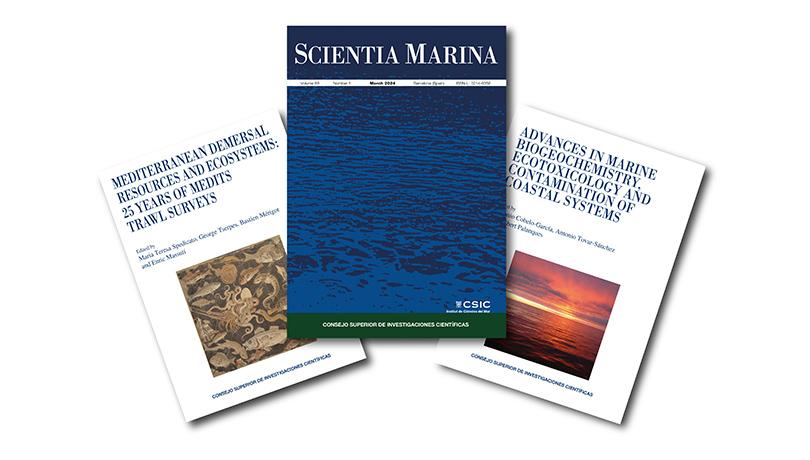The journal, edited by the ICM and published by the CSIC, has recently renewed its editorial team and its website.

Scientia Marina, a scientific journal published by the CSIC and edited by the Institut de Ciències del Mar (ICM), has renewed its editorial team and website in order to increase its impact and approach new generations. It is a reference publication in the field of marine sciences and has almost 70 years under its belt. It includes articles related to marine biology and ecology, fisheries and fisheries ecology, systematics, marine faunistics and biogeography, physical oceanography, chemical oceanography and marine geology.
"In Scientia Marina we have renewed ourselves without losing our usual spirit and our aim is to continue publishing articles of an interdisciplinary nature, putting the focus on the ecology of marine ecosystems, their conservation and the sustainable use of marine resources", exposes the journal’s management team.
"Scientia Marina”, a reference publication
Founded in 1955 as "Investigación Pesquera", the journal adopted its current name in 1989 after its entry in the "citation index". This year, it has launched a new website and has been integrated into the Editorial CSIC platform, although the content of previous issues is still available on the old website, which constitutes a real papers library.
Scientia Marina is one of the few marine science journals worldwide included in Web Of Science that is published by a non-profit public publisher, Editorial CSIC. This means that it does not charge publication fees to authors, and all manuscripts are published in "golden access", which means that the final version is available online for anyone permanently and free of charge. In this way, the journal contributes to the CSIC's commitment to advance "the responsible evaluation of research and open science". According to the Barcelona Declaration recently signed by the scientific Institution, "openness of information on research must be the new norm".
According to the management team, "these unique attributes make Scientia Marina a journal of high scientific value, but also with values and social impact that contribute to a more equitable, fair and committed science to society in the face of the challenges facing marine science and the preservation of the oceans".
The renewed editorial team
New editors from different disciplines have recently joined the editorial team, rejuvenating the editorial board with young postdocs or scientists who have recently stabilized and increasing the number of women on the committee. Thus, Aurora M. Ricart, Blanca Figuerola, Sara Miñarro, Anne-Sophie Tribot, Harold Villegas-Hernández, Anna Sánchez, Pablo Brosset, Sébastien Biton-Porsmoguer, Carlos Domínguez-Carrión, Montse Marquès, Daniela Banaru, Cristina González Haro, Yolanda Arjona and Eve Galimany have joined the team.
On the other hand, Maria Victoria Martínez de Albéniz Salas (Mariví) will soon leave the technical edition due to retirement, after more than 20 years of dedication to the magazine. Her place will be taken by Natalia Rodríguez and Ignacio José Castaño, from the ICM-CSIC Library. The journal will also continue to benefit from the invaluable contribution of the illustrator Jordi Corbera, while the technical aspects of the website and the manuscript management platform will be handled by Editorial CSIC.
Finally, Francesc Peters, who has directed the journal for the last four years, will give way to Josep Lloret, elected as the new editor of the journal at the request of the Editorial Board (following the regulations of Editorial CSIC), and Dolors Vaqué will continue as deputy editor of the journal. All in all, a completely renewed team that also has the contributions of some twenty scientific editors from different universities and research centers around the world who serve on the editorial board.
"It is great news that Scientia Marina faces the 70th anniversary with a completely renewed editorial team and full of energy to adapt the journal to the new editorial scenario and become, even more, a reference journal in the international arena and a hallmark of great relevance for the ICM", says Valentí Sallarès, director of the ICM-CSIC.